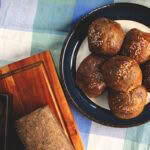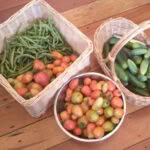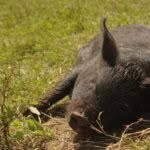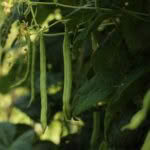Rebecca Stewart’s Blog: The self-sufficiency mindset
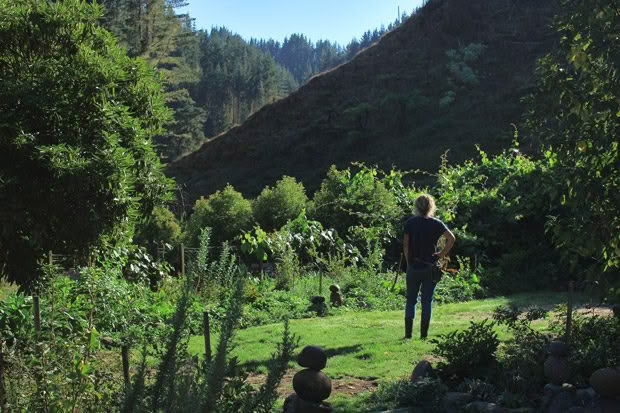
Our new columnist, who lives on a six-hectare block in King Country, makes it her daily mission to live as self-sufficient as possible. A can-do attitude is a necessity, writes Rebecca.
Photos: Summer Stewart
As a child I loved to study the illustrations in my Nana’s book, The Complete Guide to Self-Sufficiency by John Seymour. Years later she gave the book to me and though it is getting rather tatty and torn now, being nearly as old as me, it is still thumbed through often.
My husband David and I both come from rural backgrounds. Our parents produced food from their land; meat butchered on the kitchen table, fresh milk from the cow, veggies from the garden or preserving fruit in the late summer and autumn heat. Still, it has taken us many years to get to a point of knowing we can survive off our own six-hectare piece of land.
I use the word survive on purpose because we currently do not live fully self-sufficiently. We still buy ‘luxuries’ such as coffee, tea, baking supplies, extra meat, bananas and avocados — because we can. But we can stop buying these extras if need be. All it really requires is a shift in mindset. It’s not about growing what we eat, it’s about eating what we grow…
Self-sufficiency means changing the way we eat to match what we can and do produce within our own and our local homegrown community. For example, we eat low-carb. The basis of many of our meals is meat, dairy, eggs, vegetables and some fruit — all of which is produced on our land.
There are, in our wider community, sources of more types of fruit and nuts and this is useful as many of our trees are still young. By eating seasonally, storing and preserving our harvests we are able to eat a variety of foods all year round and not just the pork and silverbeet, of which we have plenty, for weeks on end.
The downside is that we have to make most things. And then do the dishes. David says our dishes like to multiply on our kitchen bench.
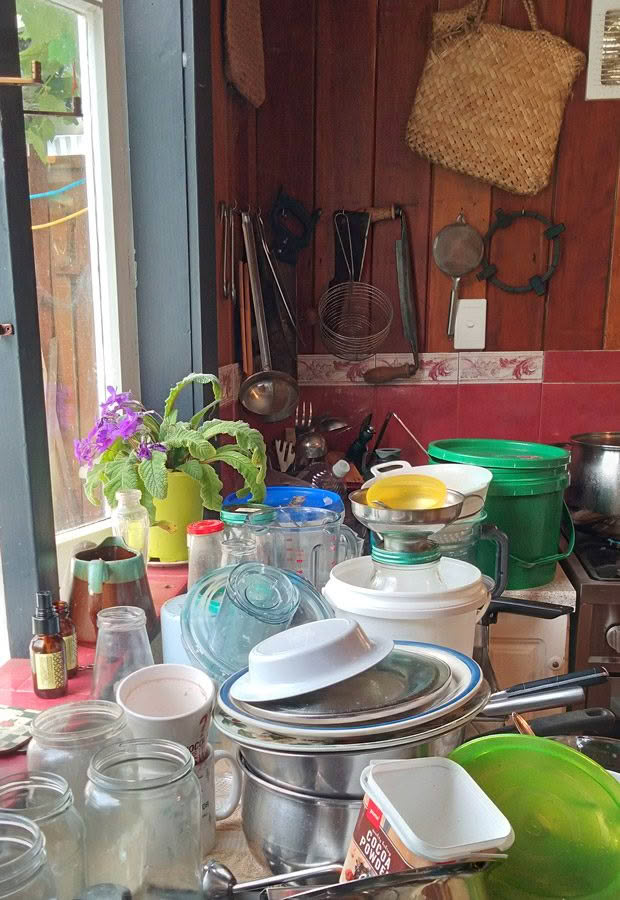
In addition to a change in eating habits, a can-do attitude is a necessity. We have an aversion to paying people to do jobs for us. I’m not saying we don’t pay bills; we would rather not have bills in the first place. We need to know how to fix things, design and build things, grow stuff, heal and nourish ourselves and our animals.
The learning never stops, there is always something else to investigate and study. As we work towards closing the loop, the sheer number of topics and tasks we embrace is huge. But it takes on a rhythm, a flow and ebb of work which is fluid depending on the season, weather, needs and priorities.
What is on the top of the ‘to-do list’ this week can quickly be bumped off by an unexpected event; for example our neighbours’ cattle grazing our recently sown ex-pine paddock that needed its fences fixed.
We need to be flexible and have a stash of ‘stuff’ on hand for all sorts of jobs and repairs. We call this is a resource pile.
Living an hour from the nearest small town doesn’t allow us to dash off into town to get last minute supplies. Living in the wop wops is great for teaching resilience and resourcefulness — also useful mindsets needed for living off the land.
This evening I walked around the garden collecting greens for the rabbits. I saw the weeds I need to deal with, the berries I haven’t got around to picking and noted the rampant growth following recent rain and the relentless heat.
So many things we need to do, but among them there is so much beauty and abundance to share. It doesn’t matter if the birds get this lot of berries or if the weeds are still there tomorrow or next week. I’ll get around to it; hopefully before they seed.
What matters is we are here in our little piece of paradise, living a life we love. That is the greatest mindset of all.
ABOUT REBECCA
In 2020, Rebecca and David Stewart subdivided and sold their block in a tiny Manawatu village in order to create a more self-sufficient way of life. Choosing to buy 6ha (14.8 acres) of land, most of it in pines in a remote corner of King Country, meant no mortgage and treasured financial independence. The distance doesn’t stop Rebecca from running the increasingly popular Homesteading New Zealand group on Facebook. She also posts regular updates on their farm’s transformation to its own page, Fodder Farm. Read more about their journey here, and visit thisnzlife.co.nz every month for the latest from their slice of New Zealand.
MORE HERE
